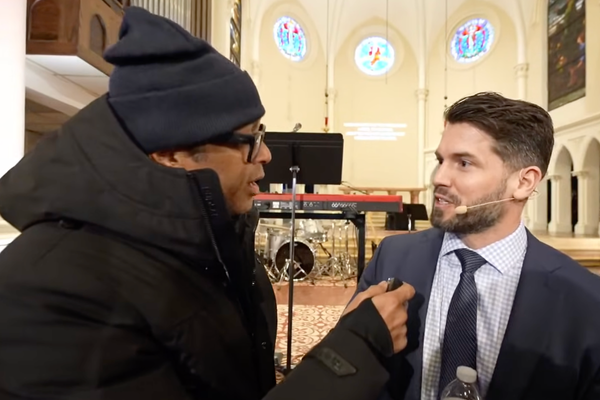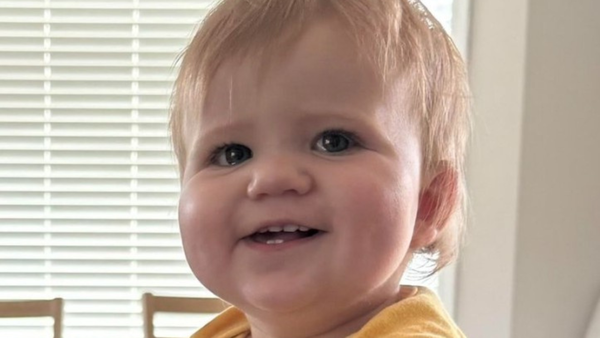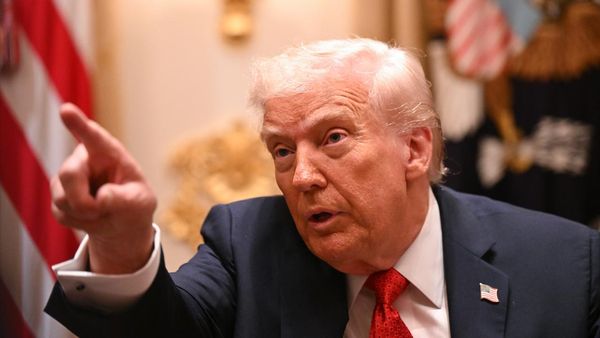
New Zealand is on the cusp of an orderly yet highly unusual transition of political power, swapping the deputy prime minister position between coalition parties.
On Saturday, Winston Peters, the wily veteran first elected in 1979, will hand over the reins to David Seymour, the rising star of the right.
The odd spectacle was agreed upon 18 months earlier, when both men argued to be deputy to Prime Minister Chris Luxon in coalition talks.
The brokered solution was a job share, which Newsroom national affairs editor Sam Sachdeva said put New Zealand in "unchartered waters".
"There have been changes in deputy PM during a term before, but only due to a leadership coup or coalition bust-up rather than a pre-arranged deal," he told AAP.
Perhaps more remarkable is the willingness of Mr Peters, the firebrand leader of NZ First, to step down for the ACT party leader Mr Seymour, the 41-year-old free-market ideologue, given past hostilities.
In 2020, Mr Seymour called Mr Peters "a crook", and while campaigning in 2023 called the 80-year-old an "arsonist showing up dressed as a fireman saying 'I am here to help and fix it all'."
"We're not going to sit around the cabinet table with this clown," he said, two months before agreeing just that.
Mr Peters has hurled all sorts of names at Mr Seymour, including "a cuckolded puppet" and a "chihuahua".
When election results showed Mr Luxon's National party would need to include both ACT and NZ First to build a majority coalition, the antagonism between the pair contributed to coalition talks taking six weeks.
The eventual agreement of a coalition deal - including the job share - brought about a detente.
"They have mellowed," NZ Herald political editor Thomas Coughlan told AAP.
That may be as the political incentive has moved from scrapping for attention and votes to presenting a united front as a co-operative, effective government.
"The coalition has been dangerously united," Mr Seymour told the NZ Herald.
"Our opponents thought it would all fall apart ... they underestimated that while we're all quite different we're all committed to digging New Zealand out of a hole."
The two men will experience Saturday's handover in differing fashion.
Mr Peters, also the foreign minister, returns from a four-country mission late in the day, and will not have to suffer the ignominy of a decommissioning, as his appointment will lapse at midnight.
Before he arrives home, Governor-General Dame Cindy Kiro will host Mr Seymour for a ceremony at her Auckland residence to formalise his ascension to the second most powerful job in politics.

The rise is a remarkable one for both ACT and Mr Seymour, who entered parliament in 2014 and spent six years as the party's sole MP before engineering the ACT's growth to serious player.
He championed euthanasia - which became law after a 2020 referendum - and was the sole voice opposing gun law reform that followed the Christchurch Mosques terror attack and Jacinda Ardern's Zero Carbon Act.
The unlikely mix of causes - and a stint on Dancing With The Stars - saw Mr Seymour improve from one MP to 10 at the 2020 COVID-infused election.
"A lot of pundits wrote the party off, guessing that eventually ACT would lose that last remaining seat and vanish," Mr Coughlan said.
"The End of Life Choice bill proved there was something more substantial to Seymour than the celebrity dancing.
"As National's support imploded during COVID, ACT seemed to be the main beneficiary and the party has never really looked back."
In government, he created a new 'regulation' portfolio, with a goal of scrapping red tape and shrinking the size of government.
Mr Seymour is loathed by the left, and never more so than during last year's debate over his Treaty Principles Bill, which drew historically large protests - particularly by Maori.
Mr Sachdeva said Mr Seymour was "among the least popular political leaders" in New Zealand, evidenced by a Labour fundraising drive on the back of him becoming deputy prime minister.
Political analysts also contend the changeover will mark the unofficial start to campaigning for the next election, due by October 2026.
"There could well be a shift in the vibe," Mr Sachdeva said.
"Seymour will almost certainly take a different approach to Peters when it comes to filling in for Luxon. He's already hinted that he might use the deputy position as a bit of a soapbox for ACT's own agenda.
"(Mr Peters) has said he'll ramp up his political campaigning once he's clear of the deputy's job and does have a history of making life difficult for his coalition partners the closer you get to the next election."
The idea that the National party was nervous about the switch was given more weight when Finance Minister Nicola Willis was asked about it on Thursday.
"You can imagine it is not marked as an enormous love heart on my calendar," she told Newstalk ZB, claiming she didn't even know it was happening.
In previous campaigns, Mr Peters has positioned his NZ First party as a swing party which could side with either left or right, exemplified by his 2017 decision to back Labour into office, making Ms Ardern prime minister.
However, he has vowed never again to support Labour, falling out with the party over Maori policy and COVID-19 mandates.
This time around, his party will rally around "anti-woke" causes, adopting Donald Trump-style campaign phrases and, most likely, to pull New Zealand out of climate commitments.
Mr Coughlan said Mr Peters would relish a return to the role of retail politician.
"Peters has travelled a lot during the first half of the term. I think he'll ease up a bit and spend more time in the heartlands leading up to the election," he said.
The switch will not cost Mr Peters any staff, but it will hit his wallet: Mr Peters' annual salary dropping from $NZ344,000 ($A319,000) to $NZ304,000 ($A282,000) and Mr Seymour enjoying the bump in reverse.







